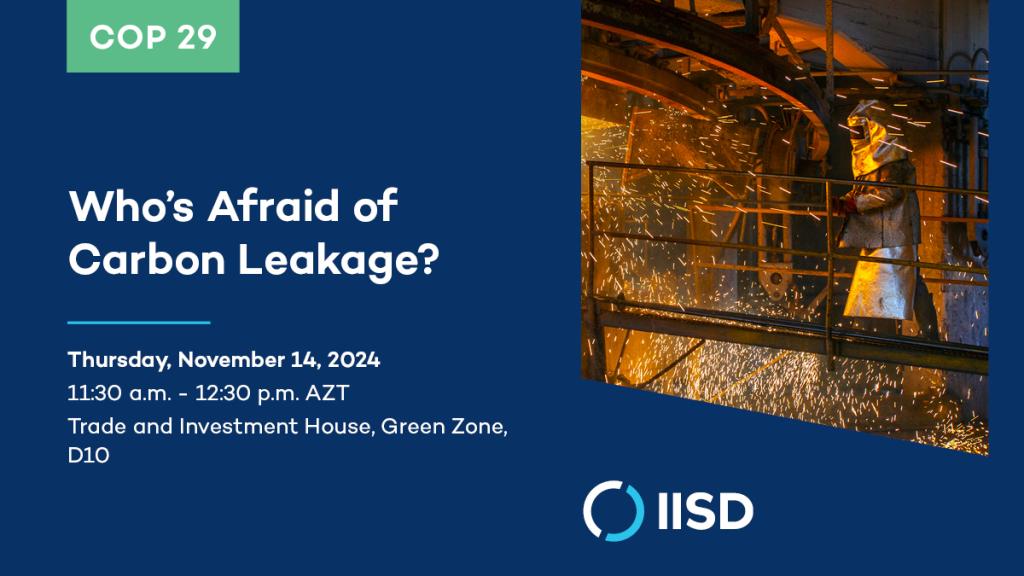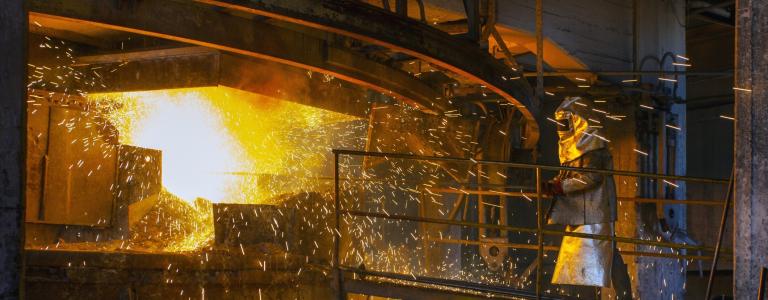COP 29 | Who’s Afraid of Carbon Leakage?

About the Event
As the pace of climate ambition is gradually picking up, so are the concerns about the competitive impact on industries in the countries adopting carbon pricing. Fears about carbon—and competitiveness—leakage have created serious considerations in many capitals about the ways to address this challenge. While taxing carbon at the border (the famous Carbon Border Adjustment Mechanism!) is one of them, this is not the only alternative moving forward. Multiple governments are solving a difficult puzzle where a range of trade instruments are on the table, waiting to be matched to country-specific situations. This interactive session will dive into the trade challenges of industrial decarbonization in a world without a global carbon price, analyzing the alternatives available to governments taking climate action while being cautious about carbon leakage: subsidies, product standards, and border carbon adjustments.
Panel
- Opening remarks: Patricia Fuller, President and CEO, IISD
- Moderator: Alice Tipping, Director, Trade and Sustainable Development, IISD
- Panelists:
- Jo Tyndall, Director of the Environment Directorate, OECD
- Ardhi Wardhana, Climate & Energy Economics Researcher, CSIS
- Benoit Desforges, Chair, Environmental Management Subcommittee on Greenhouse Gas and Climate Change Management, ISO
Beyond the Trade and Investment House: Where to find the trade team at COP 29
Future of the Steel Industry: Decarbonization, circular economy, and emerging challenges
Alice Tipping will discuss BCAs as a bridge between climate action and international trade, addressing potential trade implications of multiple BCA systems and the need for international cooperation.
- When: Thursday, November 14, 2024. 17:45 AZT
- Where: Turkish Pavilion, Blue Zone
- Organized by Istanbul Mineral and Metals Exporters' Association (IMMIB), United Nations Climate Change
- Moderator: Armağan Vurdu, Secretary-General İstanbul Mineral and Metals Exporters' Associations
- Panelists:
- Alice Tipping, Director, Trade and Sustainable Development, IISD
- Hasan Akbulut, Technical Affairs Director, Turkish Steel Producers Association
- Uğur Dalbeler, CEO, Çolakoğlu Group
- Dursun Baş, Project Coordinator, İstanbul Policy Center
Using Trade to Drive Climate and Environmental Outcomes
Alice Tipping will explore the alignment between trade and environmental policy, advocating for international cooperation on issues like fisheries subsidy reform and shaping trade policy to support climate adaptation.
- When: Friday, November 15, 2024. 10:30 AZT
- Where: Australian Pavilion, Blue Zone
- Organized by Australian Department of Foreign Affairs and Trade
- Moderator: James Baxter PSM, Australian Ambassador and Permanent Representative to the WTO, Department of Foreign Affairs and Trade
- Panelists:
- Alice Tipping, Director, Trade and Sustainable Development, IISD
- Dan Esty, Professor, Yale University, School of the Environment
- The Hon. Viliami Latu, Minister for Trade and Economic Development, Tonga
